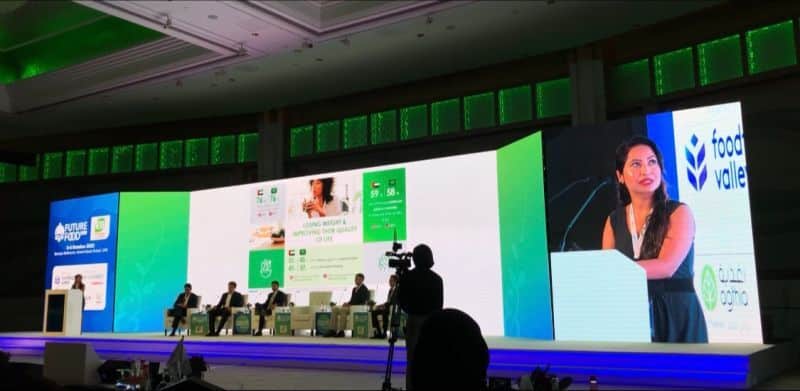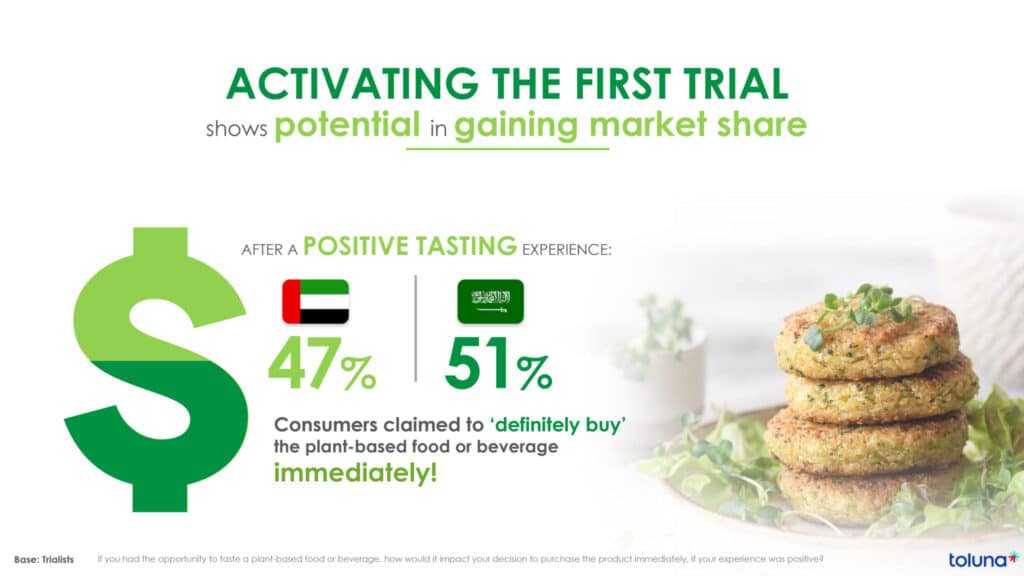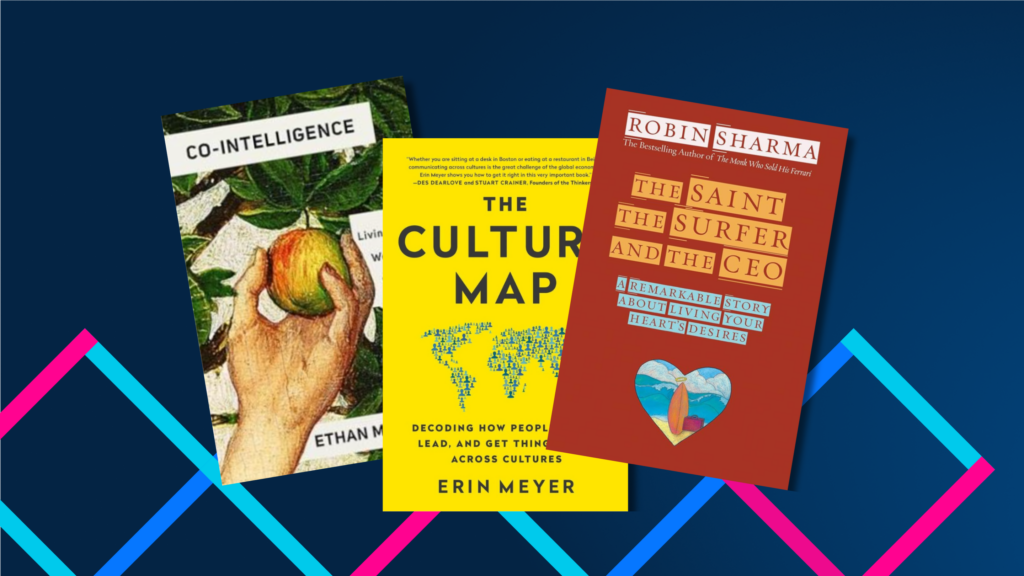
Manisha Juneja, Market Research Lead MEA, presenting Toluna’s report ‘Plant-Based Food and Beverage Revolution in the Middle East’ at the Future Food Conference in Dubai in October 2022.
The Middle East region is experiencing a surge in the consumption of plant-based food and beverages, especially over the past few years. A recent Toluna study conducted in UAE and KSA sought to understand how the plant-based category is evolving, and it revealed that more than half of the consumers has ‘either tried or started consuming’ plant-based products in the past six months—as opposed to just 9% who reported starting to try such products ‘more than two years ago.’ On top of this, about half of the plant-based consumers expect to consume more of these products in the next two years. The pace at which the plant-based universe is expanding is signaling a kind of revolution in the food and beverage industry.
It has been widely believed that plant-based food and beverages are only for niche consumers, such as vegetarians and vegans. However, the study confirms that this is merely a myth! Less than one-third of plant-based consumers are purely vegans or vegetarians. Meanwhile, in both UAE and KSA, three in ten plant-based consumers consider themselves to be flexitarians, which means that they mostly eat plant-based food, but still occasionally enjoy meat and other animal products. Therefore, the market for plant-based products is much bigger than initially anticipated. Accordingly, brands can sell plant-based products in all types of markets—not just in specialty stores. Likewise, plant-based products can be placed on any shelf and need not be accompanied by just vegan and/or vegetarian products.
Diving into the Middle Eastern consumer’s mind, we found that, when it comes to purchasing food or beverages, the most influential factors are freshness, quality, and nutritional value. And when it comes to adopting a plant-based diet, the top motivators are improving quality of life, maintaining a healthy weight, and improving self-esteem. In fact, about 60% of plant-based consumers exercise two to five times per week, further underlining their commitment to achieving health goals. To take full advantage of the immense growth potential that the plant-based category offers, brands need to communicate on these parameters more often to build trust, encourage trial, and gain market share.
Furthermore, Middle Eastern consumers are increasingly attaching importance to the environment and sustainability. This has led to higher demand for information pertaining to compliance with food regulations. To this point, more than one-third of plant-based consumers expressed their growing concern with transparency in the production process. Brands can address this and build consumer confidence by clearly communicating ingredients and nutritional facts, as well as showcasing labels/certificates of compliance on packaging, social media, and brand websites.
Interestingly, activating the initial trial seems to have a strong impact in encouraging people in UAE & KSA to purchase plant-based products. About half of plant-based consumers claimed that they will definitely buy a plant-based product immediately, if their tasting experience is positive. Therefore, brands should consider sharing free samples or conducting in-store food/beverage tastings to entice consumers to try their new product offerings and boost their market presence.

Additionally, pricing of plant-based products is more important than ever when considering the growing concern over inflation and fear over anticipated recession. About half of plant-based consumers have conveyed that they feel a financial pinch while buying plant-based products over regular food. However, the good news for brands is that Middle Eastern consumers expressed a willingness to pay a premium for plant-based products, if the brand has a strong reputation of providing quality products, ensuring a clean label, and is transparent about the manufacturing process.
In conclusion, the plant-based food and beverage industry provides an immense amount of opportunity for brands than can communicate on the long-term benefits they provide—both for consumers’ health and for the environment on the whole. By producing plant-based food and beverages that use local, pure ingredients through sustainable processes with the help of modern technology, brands can transform ‘the high-price perception’ into ‘a good value equation’ in the Middle East.



